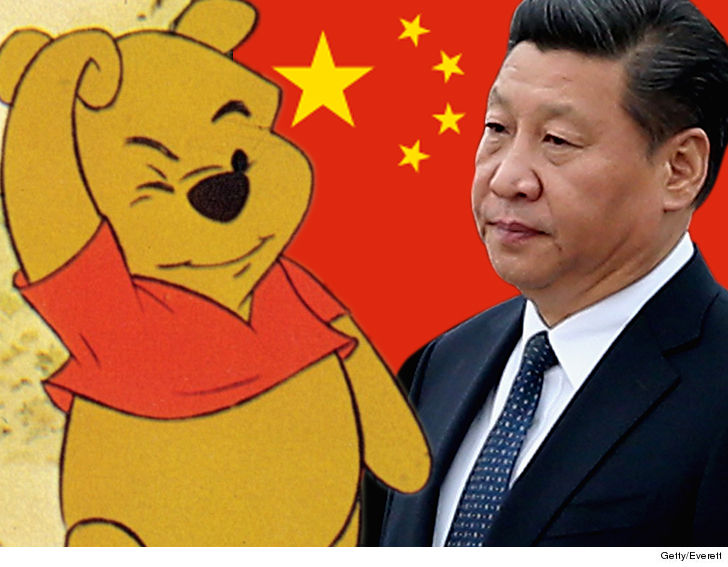ASIA MEDIA WRITES — President Xi’s two-term limit has been abolished, meaning he might be President of China indefinitely. As the news sets in, Chinese citizens take to social media to express their mixed emotions. Following these reactions, the Chinese government were quick to crack down on Chinese netizens, banning several words, phrases and memes in an obvious attempt to maintain an appearance of positive support from the masses.
On February 25, the day of the announcement, censorship on Weibo reached some of its highest levels in recent years, according to Weiboscope, a tracking tool developed by the Journalism and Media Studies Centre at The University of Hong Kong. The tracking tool noted that any words or phrases that opposed President Xi’s life term were blocked from social media. Words or phrases targeted included “Emperor Xi,” “The Emperor’s Dream,” “Dream of Returning to the Great Qing,” and even “Winnie the Pooh.”
Some Weibo users tried averting censorship eyes by retweeting old Weibo posts or posting memes. The most popular meme was of Winnie the Pooh, after Chinese citizens likened its appearance to that of President Xi. One tweet by a Chinese netizen shows the image of Winnie the Pooh in an emperor’s outfit as if to depict President Xi becoming an emperor; this went emi-viral across Weibo and WeChat. Another meme featuring Winnie the Pooh hugging a jar of honey with the caption “Find what you love and stick with it,” resembles President Xi finding what he loves, which is his presidency, and sticking with it forever. The images and memes relating to Winnie the Pooh were swiftly taken down.
Winnie the Pooh banned again in China in 3, 2 … pic.twitter.com/nIZNgP3ONu
— Josh Chin (@joshchin) February 25, 2018
These examples of criticisms within mainland China to the ending of presidential term limits were only a few amongst the entire populations criticisms being silenced. Hence, the only freedom of expression regarding criticisms of Xi were by Chinese citizens living abroad. Popular hashtags such as #IDISAGREE and #STOPXIJINPING appeared over global twitter. Tweets showing posters with slogans protesting the removal of the presidential term limit at several foreign universities have also been posted. Many of these protests showed a portrait of Xi with the phrase “Not My President.”
Poster for @stopxijinping. People don't want a president for life. pic.twitter.com/rf1BLRmwEY
— Alan (@GammaCounter) March 11, 2018
This movement was initiated on March 1 by people behind a Twitter account actually named “Xi’s Not My President,” which now has over 3,500 followers. The organizers claimed in interviews with media to be a group of mainland Chinese students living in Western countries. In another interview with the respected U.S. jounal Foreign Policy, they stated that “it’s definitely not our wish that an unelected strongman become a de facto lifetime dictator.”
These students have put up their posters in at least a dozen universities in the U.S., the U.K., Canada, and Australia. Although this has been a blatant display of resistance, these Chinese students have requested for total anonymity as they fear the Chinese government might track their words back to them, where their livelihoods might be affected upon their return.
Therefore, in the face of all the recent criticisms and protests from Chinese citizens staying abroad, Xinhua, the official press agency of the People’s Republic of China, released a statement stating that Chinese government is considering a plan to abolish the State Administration of Press, Publication, Radio, Film and Television (SAPPRFT).
Xinhua states, “The proposed administration directly under the State Council will be responsible for drafting policies and measures for radio and television management and their implementation, coordinating development of broadcasting undertakings and industries, promoting institutional reform in the sectors, importing radio and television programs, and facilitating the sectors to go global.”
Therefore, the abolishment of the SAPPRFT would lead to the creation of an even more powerful censorship agency directly overseen by the State Council, which is the Chinese equivalent of a presidential cabinet.
With China’s already stringent rules of media and social media censorship, what is to come for Chinese citizens upon the creation of this new censorship agency? With the future looking less open, little dan be assumed besides more liberties possibly being taken away from Chinese citizens. On the other hand, is it so safe to assume that none of these social-media protests originate from CIA bots? Who knows.

